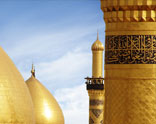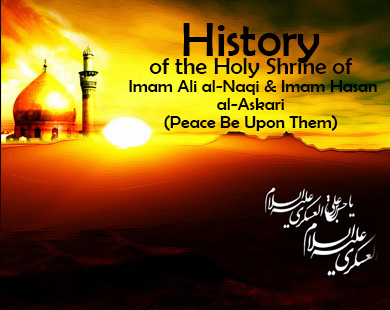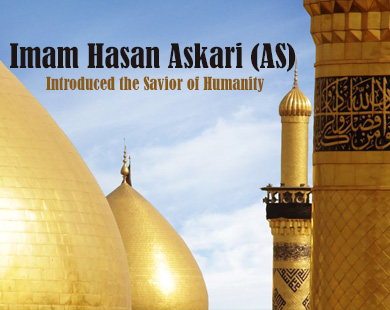Imam Hasan Askari (AS) said: “There is no calamity which does not involve a blessing from Allah.1”
The issues of “Monotheism in Worship” in its best manner, and the “Fear from the Resurrection Day” are of the significant characteristics of the family of infallibility and purification, the Ahl al-Bait. One of the companions of Imam Hassan Askari (AS) narrates:
‘On one of the days during Imam Hasan Askari’s (AS) childhood, I noticed he was standing with children of his same age. The other children were busy playing, while the Imam (AS) was standing in a corner crying (this was the first time I had seen him).
I thought that perhaps the reason for his sadness was because he did not have toys like the other children. I approached him, expressed my kindness, and said: … ‘I’ll buy you some good toys.’
He looked at me with an angry face and said:
“We are not created to play!”
I was shocked by his words, such immense knowledge and such remarkable logic!
… so I asked him: “What are we created for?”
He said:
“[We are created] to know [Allah] and worship [Him]”
Amazed by his replies, I asked: “Where have you got that answer from?”
He said:
Allah has said:
"Did you then think that We had created you in vain, and that you would not be brought back to Us?2"
I realized that his logic was based on wisdom and the Holy Quran. I was ashamed of what I had thought. Then, I said: “Why are you crying, while you are still a child and have not committed any sins?”
His cry intensified, and he said:
“Whenever my mother wants to make fire with big pieces of firewood, she first puts some small pieces of wood on fire, and then uses them to flame the big pieces of wood.
My worries are from being of those small pieces of firewood for the hellfire…”
There, I understood that he is extremely distant from me. I departed from him while astonished. Later on, I came to know who that child was and to which family he belonged…”
* Selection taken from “Safeer e-Hedayat” (Whistle of Guidance) lecture series, by Ayatollah Sayyid Muhammad Zia` Abadi, Number 27.
1- Bihar al-Anvar, vol. 75, p. 174
2- The Holy Quran (23,115)


















